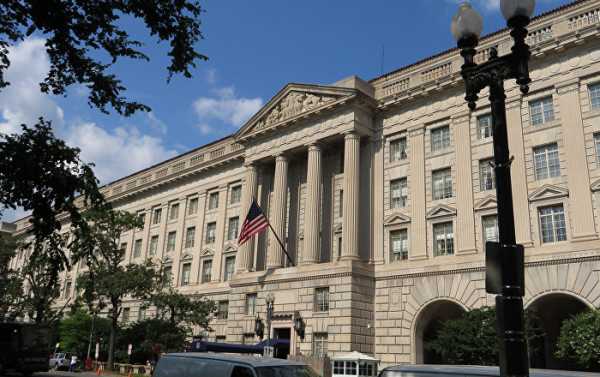
Prominent Democratic Senator Elizabeth Warren has suggested that US President Donald Trump’s decision to offer relief from steel and aluminum tariffs to several countries might pursue political and diplomatic – rather than economic – goals.
Kristian Rouz — Trump’s decree to provide tariff exemptions to Brazil, South Korea, and Argentina triggered criticism from top Democratic lawmakers. Earlier this year, some Democrats blasted Trump’s decision to impose tariffs — saying the move would hurt US consumers of industrial metals and spur inflation.
Now, Democratic Party officials are unhappy with the relief from the tariffs, which might seem like a contradiction from some of their earlier statements.
“Media reports have raised questions about political interference in the exemption process, and about whether the Administration is making unbiased decisions based upon the facts and the merits of each exemption request,” Sen. Elizabeth Warren (D-Mass.) said in a letter to Peggy Gustafson, Inspector General at the Commerce Department.
Sen. Warren expressed concern over the possible political considerations behind the tariff decision. But some experts say such allegations might not be justified.
“Tariffs are not generally used as a part of a sanctions regime to change political behavior,” Professor Douglas Irwin of Dartmouth College said. “More often you would see embargoes or prohibitions,” rather than a protectionist border tax.
Sen. Warren’s remarks come in response to a statement from the Commerce Department, outlining the relief from tariffs for certain countries. The Trump administration’s move indeed comes amid improved relations between the US and the two largest Latin American countries, whilst South Korea is considered to be one of Washington’s key allies in the Far East.
However, the Commerce Department’s statement suggests the motives behind the decision lie purely in the area of economics. It said industrial metals from certain countries may be exempt from the border tax in case of a lack of steel and aluminum available from US suppliers.
“Companies can apply for product exclusions based on insufficient quantity or quality available from US steel or aluminum producers,” the Commerce Department said.
The tariffs on industrial metals were introduced by the Trump administration back in March — and have sent shockwaves across the global commodity markets ever since. Additionally, some US allies have expressed concern due to the excessive reliance of their metals producers on the American market.
Trump has repeatedly said the tariffs would boost US production and create additional jobs and revenues in the domestic metals industry. Some critics — including prominent Democratic lawmakers — had pointed out the tariffs could create shortages of steel before US producers are able to ramp up their output, hence the exemptions.
“In such cases, an exclusion from the quota may be granted and no tariff would be owed,” the Commerce Department said.
Meanwhile, South Korea and Argentina are facing mounting economic challenges in the form of a slower GDP growth in the former, and a severe currency crisis and looming recession in the latter. The relief from US tariffs is expected to support both economies, further contributing to their stronger ties with the US.
Sourse: sputniknews.com






